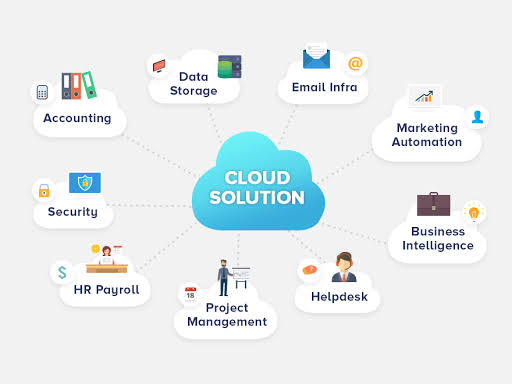Cloud storage solutions have become a vital part of both personal and business data management in today’s digital world. As of 2025, cloud storage has evolved beyond simple file storage to offer advanced collaboration tools, real-time access, and enhanced security features. Whether for individuals managing personal files or organizations handling large volumes of data, cloud storage provides flexibility, cost savings, and improved efficiency compared to traditional storage methods.
With the growing demand for remote work and digital transformation, businesses are increasingly relying on cloud storage to streamline workflows and ensure data availability across multiple locations. The benefits extend beyond convenience, touching on scalability, disaster recovery, and advanced security capabilities.
Easy Accessibility and Collaboration
One of the most significant advantages of cloud storage is its accessibility. Users can access files and documents from any location and on any device with an internet connection. This flexibility supports remote teams and allows seamless collaboration across time zones and geographical boundaries.
Many cloud platforms include integrated collaboration tools, enabling multiple users to work on the same document simultaneously. Features such as real-time editing, version control, and shared access links make teamwork more efficient, reducing the need for multiple versions of the same file.
Cost-Effectiveness
Cloud storage eliminates the need for physical hardware such as servers and storage devices. Businesses can avoid large upfront costs for infrastructure and instead opt for subscription-based pricing models. This pay-as-you-go approach allows companies to scale their storage capacity based on current needs without overspending on unused resources.
For individuals, cloud storage services often offer free or affordable plans with ample space for personal use, making it an attractive alternative to external hard drives or USB storage devices.
Enhanced Data Security
Modern cloud storage providers implement advanced security protocols, including encryption, multi-factor authentication, and continuous monitoring. These measures protect sensitive data from unauthorized access, cyberattacks, and breaches.
Reputable providers also maintain robust data backup systems and redundancy measures, ensuring that data remains safe even in the event of hardware failures or natural disasters. Compared to traditional storage methods, cloud solutions offer better resilience and reliability.
Scalability and Flexibility
Cloud storage is highly scalable, allowing users to increase or decrease storage space as needed. This flexibility is especially beneficial for businesses experiencing growth or seasonal demand fluctuations. Instead of investing in additional on-site servers, organizations can simply adjust their subscription plans to match their requirements.
Additionally, cloud solutions can integrate with other business tools and applications, creating a centralized platform for data management and workflow automation.
Disaster Recovery and Backup
One of the most valuable features of cloud storage is built-in disaster recovery. Files are often stored across multiple servers and locations, reducing the risk of data loss due to local hardware damage or accidents.
Automatic backups ensure that data can be restored quickly in case of accidental deletions, system failures, or cyber incidents like ransomware attacks. For businesses, this capability is critical for maintaining continuity and minimizing downtime.
Improved Productivity and Efficiency
With cloud storage, employees no longer need to spend time managing physical hardware or worrying about file transfers. Access to centralized, organized data improves workflow efficiency, enabling teams to focus on core tasks rather than administrative issues.
The ability to integrate cloud storage with communication and project management tools further enhances productivity by streamlining information sharing and reducing unnecessary duplication of work.
Environmental Benefits
By reducing the need for physical servers and storage devices, cloud solutions contribute to a lower carbon footprint. Many cloud providers operate energy-efficient data centers powered by renewable energy, aligning with global sustainability goals.
Conclusion
Cloud storage solutions offer a range of benefits that make them essential for modern data management. With advantages such as easy access, cost savings, advanced security, scalability, and disaster recovery, they have become the backbone of digital operations for individuals and businesses alike.
As technology continues to evolve, cloud storage will likely become even more integrated with artificial intelligence and advanced automation tools, creating smarter and more efficient data solutions for the future.




Cloud storage has become a cornerstone of modern data management, boosting productivity by providing centralized access, seamless integration with collaboration tools, and eliminating the need for physical hardware.
This article is educating